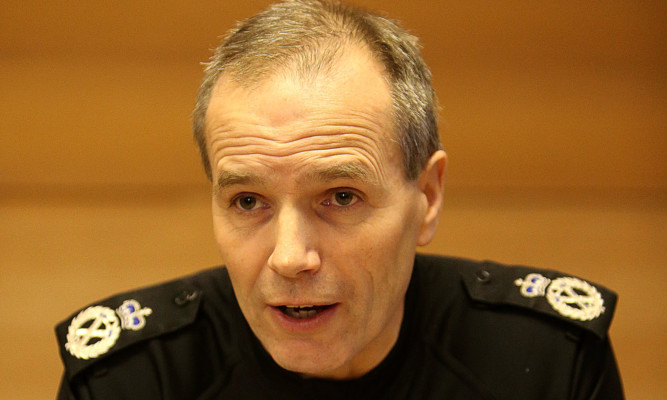Police Scotland’s chief constable will face further questions today on the past and future use of consensual stop-and-search in Scotland.
Sir Stephen House is due to appear at Holyrood’s Justice Sub-Committee on Policing to discuss the controversial practice.
The meeting comes after it emerged that children under 12 have continued to be stopped and searched on a consensual basis, despite a clear commitment last year to end the practice for children.
The chief constable will be questioned on the issue alongside Assistant Chief Constable Wayne Mawson, who told the committee in June that searching children below the age of consent was “indefensible” and must stop throughout Police Scotland.
Justice sub-committee convener Christine Grahame said: “It is appropriate that the chief constable has agreed to attend the sub-committee to explain the latest Police Scotland position in relation to ‘stop-and-search’.
“This is an issue that many members of Parliament have concerns about and I look forward to hearing how Police Scotland and the SPA are responding to those concerns.”
On June 19, Mr Mawson told the committee: “I am going to make a strong statement: from here on in, we should not search young children who are under the age of consent. That must stop.”
He said it should stop “quick time right across Police Scotland, because the current position is fairly indefensible”.
However, on February 4 it emerged that since June, 356 children in that age group had been stopped and searched by Police Scotland.
Concerns were raised during First Minister’s Questions and at the Sub-Committee’s meeting, both held on February 5.
That same day, the chief constable announced plans to review a range of alternative measures to replace consensual stop-and-search.
Sir Stephen was called before a specially convened meeting of the Scottish Police Authority to explain the latest revelations.
His officers said the absence of powers to search under-18s for alcohol must be addressed if consensual stop-and-searches are ended.
A working group is to be set up to review measures to replace non-statutory or “consensual” searches for all age groups.
But the force says ending the practice will leave gaps in their ability to protect the public, with tackling under-age drinking and anti-social behaviour identified as one area of concern.
